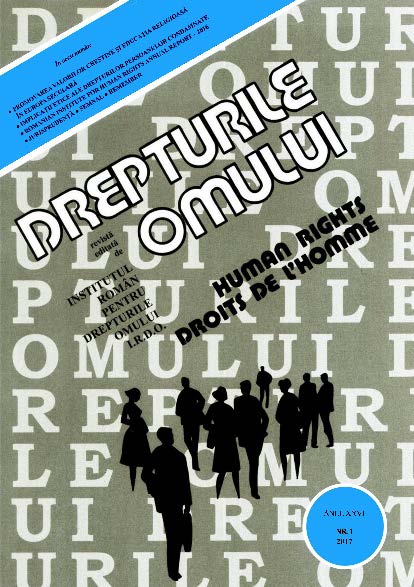Implicaţii etice ale drepturilor persoanelor condamnate
Ethical implications of the rights of convicted persons
Author(s): Oana-Roxana PavelSubject(s): Criminal Law, International Law, Human Rights and Humanitarian Law
Published by: Institutul Român pentru Drepturile Omului
Keywords: detained; human rights; education; prison; penitentiary;
Summary/Abstract: Although designed to help mankind and prevent serious deeds, imprisonment is perceived as unfair and lacking in positive experiences, the expression of injustice and inhumanity in the wider society. Prison is a world where people are sent to be isolated from society, monitored by guards and video cameras, bounded by a barbed wire fence, and guarded by towers with armed personnel. The penitentiary system is an important public utility service that should be administered in the name of justice and humanism. The treatment of those condemned should be reassessed, not focusing on the exclusion of detainees from society, but on the fact that they continue to be part of it. The core of human rights concerns four intangible rights: the right to life, the right not to be tortured and the right not to be subjected to inhuman or degrading treatment, the right not to be enslaved or in a state of Servitude, the right to non-retro activity of the criminal law. These are fundamental norms that benefit every person, anywhere and in any circumstance.
Journal: Drepturile omului
- Issue Year: 2017
- Issue No: 1
- Page Range: 10-16
- Page Count: 7
- Language: Romanian

